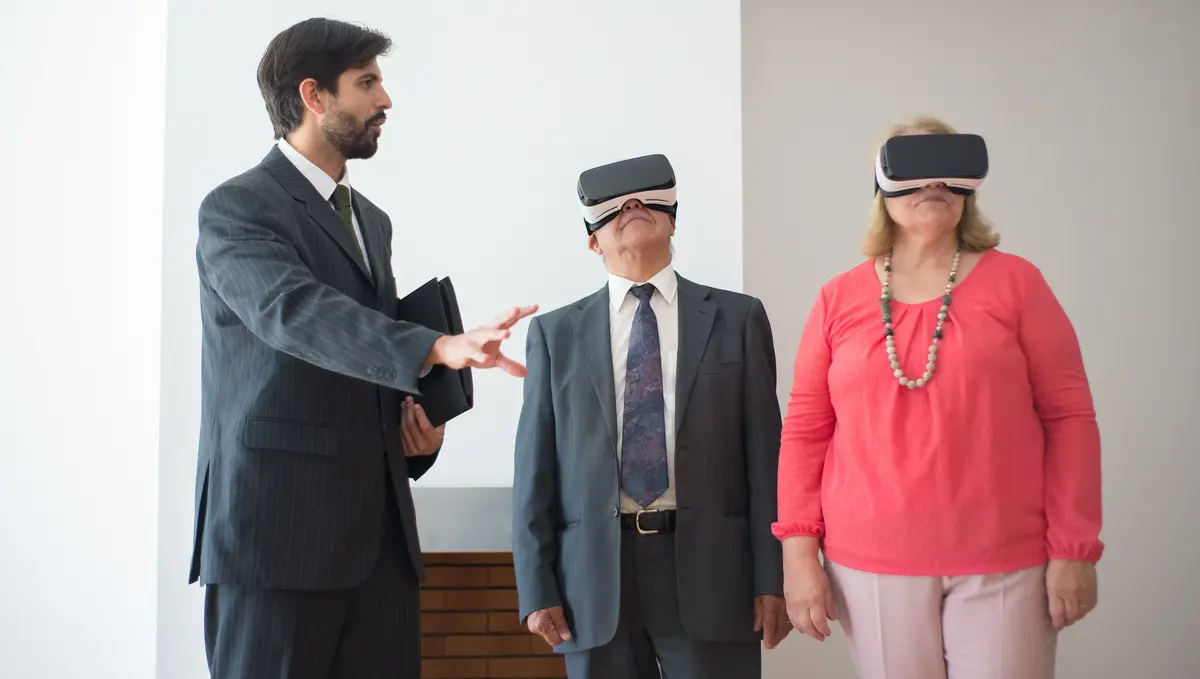Benefits of Virtual Reality (VR) for Real Estate
Posted on April 1, 2023 3 minutes 478 words
Table of contents
Virtual Reality (VR) technology has come a long way since its inception, finding applications in various industries. One sector that has started to harness the potential of VR is real estate. By creating immersive experiences for clients, VR is revolutionizing the property industry. In this blog post, we’ll explore the numerous benefits of Virtual Reality for real estate and how it’s changing the way properties are marketed, viewed, and sold.
Enhanced Property Visualization
Gone are the days when clients had to rely on flat 2D images or videos to understand the layout and feel of a property. VR enables potential buyers to embark on a 3D virtual tour of a property, allowing them to fully appreciate the space and design. Moreover, virtual staging can transform empty or unfurnished properties, making it easier for clients to visualize how they might utilize and decorate the space.
Cost and Time Savings
Physical property visits can be time-consuming and expensive for both agents and clients. VR technology drastically reduces the need for such visits, leading to significant savings in time and resources. Additionally, fewer trips mean reduced CO2 emissions, contributing to a more sustainable environment. The efficiency of VR also helps real estate agents manage multiple clients simultaneously, streamlining the sales process.
Remote Accessibility
VR technology breaks down geographical barriers, allowing potential buyers and investors to tour properties from anywhere in the world. This is particularly beneficial for those relocating or investing in international properties. For real estate agents, VR expands their client base, increasing the potential for successful transactions.
Customization and Personalization
Virtual Reality enables users to visualize potential modifications to a property, such as renovations or additions. This feature helps buyers make informed decisions and increases their satisfaction with the purchase. For developers and contractors, VR provides an opportunity to showcase various design options, ensuring clients can visualize their dream home before construction begins.
Training and Education
The real estate industry can also leverage VR for training purposes. Through simulations and role-playing scenarios, agents can practice their sales skills and client interactions in a realistic virtual environment. This immersive training experience can lead to improved performance and increased confidence in real-world situations.
Market Differentiation
Adopting VR technology can set real estate companies apart from their competitors, attracting tech-savvy clients and bolstering their reputation for innovation. As the industry evolves, staying ahead of the curve can be crucial for success.
Conclusion
The benefits of Virtual Reality for the real estate industry are vast, offering enhanced visualization, cost and time savings, remote accessibility, and more. As technology advances and becomes more accessible, real estate professionals should consider embracing VR to elevate their business and provide clients with a truly immersive property-buying experience. The future of real estate is here, and it’s time to embrace the possibilities that VR has to offer.








